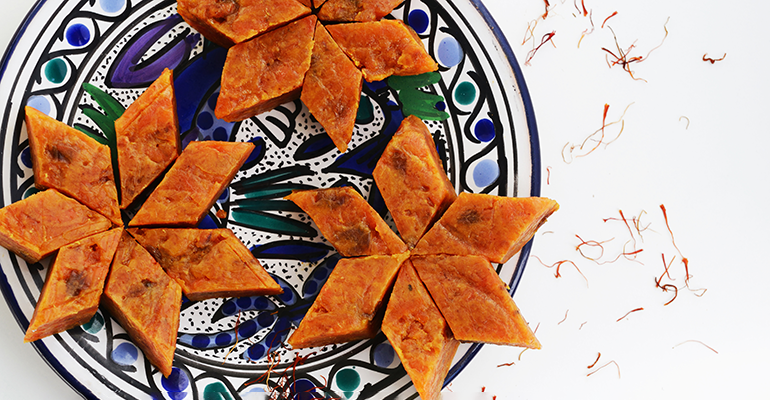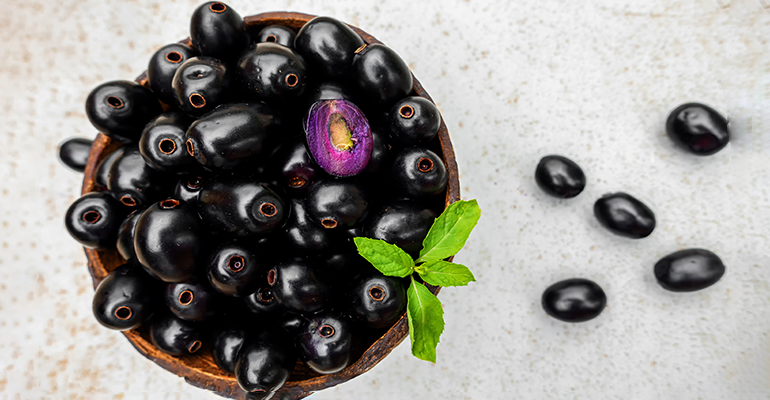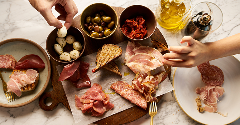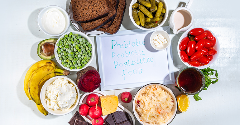News
Spice up flavour offerings to appeal to Indian consumers
29 May 2023
Forget “boring” vanilla and chocolate. Indian sweet bakery brands should seek flavour inspiration in seasonal fruits, such as jamun and mango, or traditional desserts like carrot halwa to pique the interest of Indian consumers, says Mintel.
Market research company Mintel surveyed over 3,000 Indian adults and found that nearly three-quarters – 70% - said the usual offerings were “becoming boring”.

Compared to more mature sweet bakery markets, Indian brands offer a much more limited range of flavours. Analysing product launch data over almost three years, Mintel found there were more than five times as many individual flavours among UK sweet bakery launches compared to Indian ones over the same period.
Indian bakery brands continue to focus on the staple flavours, chocolate and vanilla.
Anamika Banerj, food and drink analyst at Mintel and food scientist, said: “Introducing product innovation that features seasonal flavours can be a good route to spark new interest and attract more consumers. The vast variety of seasonal fruits (e.g., jamun, mango) and sweet goods (e.g., carrot halwa) prepared during different seasons and festivals throughout the year can serve as flavour inspirations for packaged sweet bakery products.”
Native to the Indian subcontinent, jamun, also known as Indian blackberry, has a sweet, tangy flavour and, in Hindu cosmology, is known as the fruit of the gods. Carrot halwa is a traditional dessert from north India flavoured with cardamom.
Mintel data showed that India was “lagging” in product innovation within the sweet baked category because only 4% of all new sweet bakery product launches between September 2021 and 2022 in the country were seasonal, Banerj wrote in a blog post.
Ready-to-bake mixes offer a convenient compromise
Banerj also noted that ready-to-bake products are growing in popularity, particularly among young Indians aged between 18 and 34 who are interested in simplified and convenient home baking options that nevertheless require some involvement. Almost one-third of students and urban consumers expressed a desire for ready-to-bake cake mixes, with 31% and 32% respectively saying there were interested in such products.
 Pictured: Black ripe jamun (a.k.a. Syzygium cumini) fruits | © AdobeStock/Onuchcha
Pictured: Black ripe jamun (a.k.a. Syzygium cumini) fruits | © AdobeStock/Onuchcha
Finally, healthy indulgence is an emerging opportunity with increasing numbers of consumers looking for healthier alternatives. While most Indians still want sweet baked products to taste indulgent and pleasurable – 77% said that sweet baked products lift their mood – they also want them to be healthier.
Specifically, 33% said it was important that the product is made with whole wheat, while 32% wanted baked goods to contain “all-natural” ingredients, and 31% wanted products to be rich in nuts.
“Better-for-you versions that reduce or take away the guilt while maintaining the taste and fun element will offer permissibility. This presents a promising opportunity for the sweet bakery sector in India to innovate and cater to evolving consumer needs,” Banerji said.
Regional flavour innovation
Using regional or traditional flavours in packaged food and drink products can help revive interest in stagnating categories or simply generate consumer interest in trying a new product format made with a well-known flavour.
Mintel researchers previously suggested that chewing gum brands in India should innovate with local flavours to lift declining sales, for instance.
Most chewing gum products in India are flavoured with mint but this ignores the much more complex and varied flavours used in traditional mukhwas, an after-meal palate freshener. Mukhwas are made from a blend of fragrant spices, seeds, and essential oils, such as clove, cinnamon, fennel, anise, sesame seeds, and peppermint oil.
Related news

Oat Barista: Innovation for game-changing beverages
20 Nov 2025
Oat Barista is a clean label, sustainable, and innovative drink base specifically designed to create the perfect foam in one single ingredient.
Read more
Nitrites: Pressure grows on UK to follow EU’s lead
20 Nov 2025
Pressure is growing on the UK to follow the EU’s lead after the bloc revised its regulations on the permitted levels of nitrites and nitrates in cured meats.
Read more
Empowering innovation in fortification and colouration
13 Nov 2025
Divi’s Nutraceuticals offers a large portfolio of innovative, high-quality ingredients for foods, beverages, and supplements, with bespoke solutions and expert support for product success.
Read more
Danone highlights digestive health as potential ‘tipping point’ for food industry
13 Nov 2025
Danone is betting on a food industry “tipping point” that will bloat the market for healthy products, particularly those related to gut health.
Read more
Standing Ovation and Bel scale up casein production from dairy co-products
11 Nov 2025
Foodtech company Standing Ovation has partnered with cheese specialist Bel Group to manufacture dairy serums for industrial-scale casein production via precision fermentation.
Read more
AI attraction means foodtech startups must ‘prove’ rather than ‘promise’
4 Nov 2025
Reports suggest that artificial intelligence (AI) is sucking investment from foodtech and agritech, but investors say the picture is complicated.
Read more
Will postbiotics become the go-to functional ingredient?
3 Nov 2025
Postbiotics show significant promise for the functional foods market due to their safety profile and beneficial bioactive properties, research suggests.
Read more
Meet the finalists of the Fi Europe Innovation Awards 2025
31 Oct 2025
Who made it to the shortlist of the Fi Europe Innovation Awards 2025? Read about the 23 companies making food and drink products healthier and manufacturing processes more efficient.
Read more
Penguin and Club bars no longer classed as chocolate
30 Oct 2025
Penguin and Club bars can no longer be classified as chocolate after the pladis-owned McVitie’s brands turned to cheaper alternatives amid the ongoing cocoa crisis.
Read more
Shorter drying time, sweeter success!
30 Oct 2025
Curious about cost-effective, sustainable and delicious candy making? Stefan Wessel reveals how Avebe’s solutions reduce drying time and energy use by up to 50%.
Read more